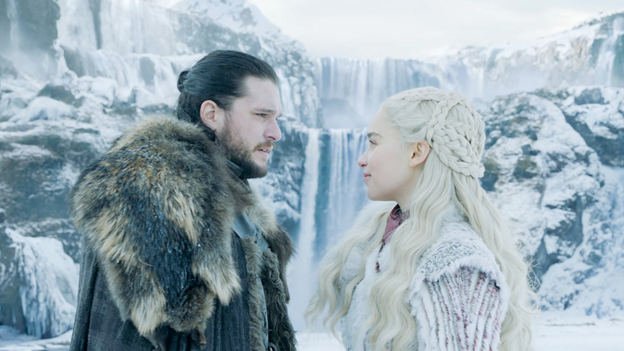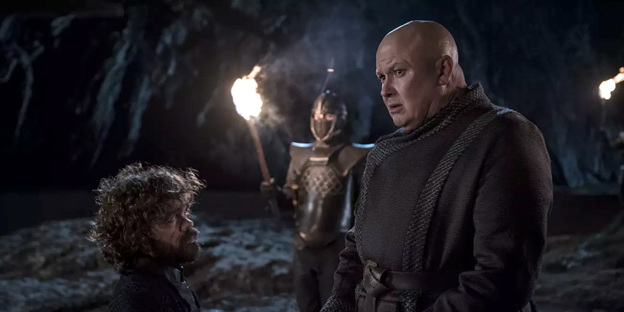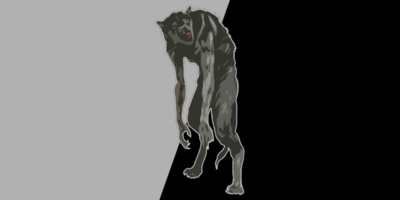I called my dad this morning to tell him that the final episode of GAME OF THRONES aired last night. He laughed, jokingly proclaiming that “at least they’re finally putting it to rest.” You see, my father and I started watching GAME OF THRONES together back in its heyday, long before Starbucks photobombs and angry petitions littered the internet. But don’t be mistaken: GAME OF THRONES was always a meme. As longtime SOPRANOS fanboys, my father and I always hate-watched GAME OF THRONES for catapulting television into the blockbuster era, replacing much of the dramatic heft of HBO’s glory days for something far more synthetic. It was enjoyable, to be sure; everything from the Battle of Blackwater Bay to the Red Wedding were a hoot and a half, proving that although high-fantasy had worn out its welcome in my household, it certainly still had a few tricks up its sleeve.
But in 2016 my father suffered an aneurysm, a stroke, and fell into a two-month coma. To say that it put a dent in our viewing of GAME OF THRONES would be a wallop of an understatement. I ultimately decided not to watch Season 6 until he’d be fully recovered and back to enjoy some monarchal action. The good news was that my father did recover! Unfortunately, his short term memory took a hit, which made it rather hard to keep up with disparate plot threads and character names longer than the time he spent in physiotherapy.

Mr. Zaciu, Defeater of Cancer, Learner of Walkers, Gainer of Tracheostomies, Breaker of Comas, Fan of Massages
Nonetheless, we prevailed. Watching seasons 6 and 7 involved countless intermissions in which I would remind my father that Jorah now has greyscale, Jon Snow is probably a Targaryen, and The Hound is on an unending quest to kill his brother—he never really needed help remembering what was up with Daenerys, and to be honest, I’m not sure if that speaks to the fact that his brain just pays more attention to women or because her character has always been the most lazily linear protagonist in the series. Whatever the case, by the time Season 8 rolled around, my father was completely lost when E801, “Winterfell,” reintroduced our entire cast like a football roster. It was at this point that he gave up on the show (most fans probably wish they had done the same).
But the reason he left the show unfinished has a lot less to do with his memory than it has to do with the experience. By the time E802 aired, my father had flown back to Europe, and I was unable to watch it with him. Sure, he didn’t really care about a series he couldn’t possibly keep track of anymore, but more importantly, there was no joy to be found in watching GAME OF THRONES alone. This was a sentiment he repeated on the phone this morning, and I don’t blame him. As little as he understood, and as impossible as it was for him to really remember every allegiance and double crossing, he was absolutely there for it every time I’d sit down and blare that HBO hum through the house.

Pictured: my father giving up on Game of Thrones
It was through this experience that I came to understanding the cultural phenomenon that was GAME OF THRONES—and as a result has also been why I’m not nearly as upset, appalled, or otherwise up-in-arms about Season 8 as the rest of the internet seems to be. GAME OF THRONES was never a fantastic show. It was an impressive one to be sure, bolstered by the transgressive nature of the books, and crippled once it couldn’t use these texts as a crutch. Often wonderfully conceived, and expertly executed, but always a hokey soap opera at its core, littered with eye-candy actors delivering pseudo-intellectual line readings. It was never bread-and-butter television a la THE SOPRANOS, nor the vibrant character drama of BREAKING BAD.
But that was also never really the point, was it? When all is said and done, GAME OF THRONES was a universally compelling study of the chaos of war, and an attempt to find a sense of closure and common purpose within it. If a David Chase show was TV’s equivalent to a Sidney Lumet film, Benioff and Weiss gave us televised Roger Corman—tits, blood, cursing, and all. But don’t get me wrong: it was always a cool, fun romp, one that even had the potential to get rather profound at times! But fundamentally, more than anything else, it was an opportunity to bring people together through bombast; a series that lived and died by its communal viewing, and thus more cinematic than most television (at least in the traditional sense of the word). It was never conceived to be watched completely alone—that’s what THE WIRE was for—and perhaps that’s its greatest achievement: a show that turned all our living rooms into congregational movie theatres! I hate to sound old fashioned, but maybe the real GAME OF THRONES was the friends we made along the way.
















[…] You can read Sergio Zaciu‘s personal take on the show here. […]